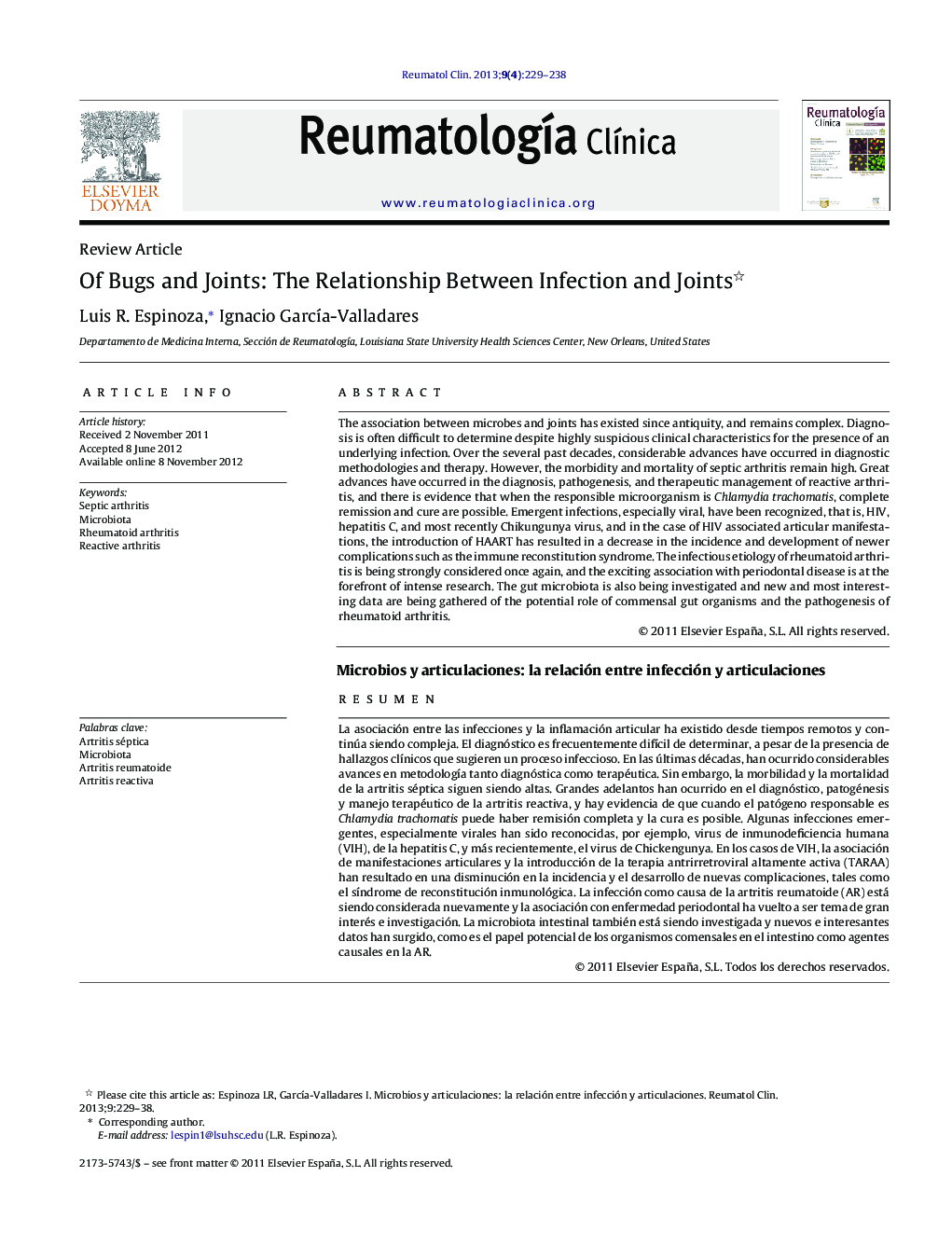| Article ID | Journal | Published Year | Pages | File Type |
|---|---|---|---|---|
| 3384494 | Reumatología Clínica (English Edition) | 2013 | 10 Pages |
The association between microbes and joints has existed since antiquity, and remains complex. Diagnosis is often difficult to determine despite highly suspicious clinical characteristics for the presence of an underlying infection. Over the several past decades, considerable advances have occurred in diagnostic methodologies and therapy. However, the morbidity and mortality of septic arthritis remain high. Great advances have occurred in the diagnosis, pathogenesis, and therapeutic management of reactive arthritis, and there is evidence that when the responsible microorganism is Chlamydia trachomatis, complete remission and cure are possible. Emergent infections, especially viral, have been recognized, that is, HIV, hepatitis C, and most recently Chikungunya virus, and in the case of HIV associated articular manifestations, the introduction of HAART has resulted in a decrease in the incidence and development of newer complications such as the immune reconstitution syndrome. The infectious etiology of rheumatoid arthritis is being strongly considered once again, and the exciting association with periodontal disease is at the forefront of intense research. The gut microbiota is also being investigated and new and most interesting data are being gathered of the potential role of commensal gut organisms and the pathogenesis of rheumatoid arthritis.
ResumenLa asociación entre las infecciones y la inflamación articular ha existido desde tiempos remotos y continúa siendo compleja. El diagnóstico es frecuentemente difícil de determinar, a pesar de la presencia de hallazgos clínicos que sugieren un proceso infeccioso. En las últimas décadas, han ocurrido considerables avances en metodología tanto diagnóstica como terapéutica. Sin embargo, la morbilidad y la mortalidad de la artritis séptica siguen siendo altas. Grandes adelantos han ocurrido en el diagnóstico, patogénesis y manejo terapéutico de la artritis reactiva, y hay evidencia de que cuando el patógeno responsable es Chlamydia trachomatis puede haber remisión completa y la cura es posible. Algunas infecciones emergentes, especialmente virales han sido reconocidas, por ejemplo, virus de inmunodeficiencia humana (VIH), de la hepatitis C, y más recientemente, el virus de Chickengunya. En los casos de VIH, la asociación de manifestaciones articulares y la introducción de la terapia antrirretroviral altamente activa (TARAA) han resultado en una disminución en la incidencia y el desarrollo de nuevas complicaciones, tales como el síndrome de reconstitución inmunológica. La infección como causa de la artritis reumatoide (AR) está siendo considerada nuevamente y la asociación con enfermedad periodontal ha vuelto a ser tema de gran interés e investigación. La microbiota intestinal también está siendo investigada y nuevos e interesantes datos han surgido, como es el papel potencial de los organismos comensales en el intestino como agentes causales en la AR.
